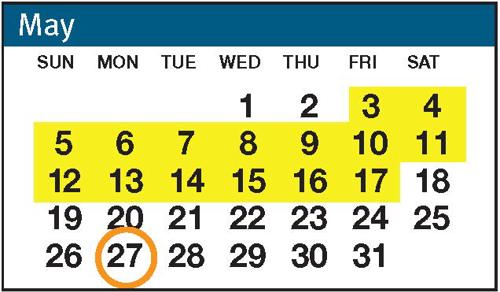Getting paid is one of the best things about work. Alberta has laws about how you get paid. The laws also tell your employer how much money they must pay you.
Do you see red words on this page? Click or tap these words to learn what they mean. Or visit the Easy Reading Dictionary.
Alberta’s work laws can change. When they do, the Alberta government helps employers and workers learn about the new laws.
How can you get paid?
Employers can pay you cash. Or they can pay you with a cheque. They can also put the money in your bank account. This is called a direct deposit.
You can earn your pay in many different ways:
- Earn by the hour. The money you earn in an hour is called a wage. For example, Jo works at a farm. His wage is $17 per hour.
- Earn by the week or month. The money you earn in a week or a month is called a salary. For example, Sara works in an office. She is paid a salary of $2,700 per month.
- Earn by the piece. You can earn money for each piece of work you do. This is called piece work. If you do more work, you get more pay. For example, Tomas makes baskets. He is paid by piece work. He earns $2 for every basket he makes.
- Earn by commission. Do you sell things? You can earn money for each sale you make. This is called a commission. A commission is a small part (or percentage) of the value of what you sell. For example, Miriam sells cars. She earns 5% commission. Last week she sold a car for $10,000. Her commission pay for the sale was $500, which is 5% of $10,000.
Your pay can change. You can get a raise. This is when your employer gives you more money. Or sometimes your pay can go down. Employers who want to change how much they pay you must tell you first. They cannot change your pay until after the next payday.
How much must you be paid?
You and your employer must agree on how much you get paid. You must agree before the job starts.
Alberta has a minimum wage. The minimum wage is the lowest amount you can be paid each hour if you are 18 or older. Many employers pay more. But for most jobs, it is against the law to be paid less. This is true even for commission and piece work.
To find out what Alberta’s minimum wage is right now, see Minimum wage rates. There is a different minimum wage for students under 18 years of age.
Some jobs do not have to pay a minimum wage. Visit Exempt occupations for a list of these jobs.
What happens when you are paid by piece work?
Example
Tomas is paid by piece work. He makes $2 for every basket he builds.
Tomas gets paid every week. This week he worked 22 hours. He built 100 baskets.
How much will Tomas earn?
100 baskets × $2 for every basket = $200.
Tomas will earn $200 for the baskets he built this week.
But do not forget work laws about minimum wage. How much minimum wage will Tomas earn for the hours he worked this week?
22 hours this week × $15 per hour at minimum wage = $330.
Tomas will earn $330 at minimum wage this week.
The minimum wage amount is more than Tomas’s piece work wage. His employer must pay Tomas no less than the minimum wage amount. This is the law.
Do you earn less than minimum wage? Talk to your employer. Or contact Employment Standards.
How often should you get paid?
The Employment Standards Code has work laws about how often you get paid. How often you are paid is called a pay period.
This is the time from one payday (the day you get paid) to the next payday. Pay periods are regular. They cannot change.
Employers can decide how long a pay period is. It can be:
- Every day
- Once a week
- Twice a month
- Once a month
The pay period cannot be longer than a month.
When the pay period ends, you must be paid. Your employer has 10 days to pay you.
What a pay period looks like
This is an example of Hala’s work month. Hala’s pay period is 2 weeks. She gets paid every 2 weeks on Friday.

This month, Hala’s pay period starts on May 3 and ends on May 17. Hala’s employer must pay her by May 27. This is 10 days after her pay period ends.
Work laws about your pay stub
Alberta’s work laws say what must be on your pay stub. For example, your pay stub must tell you:
- Your pay—what you have earned
- Your deductions—what has been taken from your pay, such as income tax
- Your overtime—extra hours you have worked and must be paid for
- Your time off—such as vacations and holidays
Your employer can pay you in many ways. They must always tell you how you will get paid, how much, and how often. To learn more, visit Payment of earnings.

